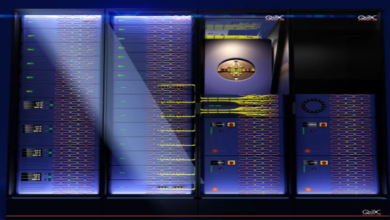IRS Issues FAQ on Clean Fuel Production Credit

The Internal Revenue Service (IRS) recently released a comprehensive set of Frequently Asked Questions (FAQs) regarding the Clean Fuel Production Credit, aiming to provide clarity and guidance to taxpayers navigating this complex area of tax law. This move comes as part of the IRS’s ongoing effort to assist businesses and individuals in understanding and maximizing their eligibility for tax credits related to clean fuel production.
Overview of the Clean Fuel Production Credit IRS
The Clean Fuel Production Credit is a federal tax credit designed to incentivize the production and use of certain types of clean fuels. These fuels typically have lower carbon emissions compared to traditional fossil fuels, promoting environmental sustainability and reducing greenhouse gas emissions.
The credit applies to both businesses and individuals engaged in producing or using eligible clean fuels, providing a financial incentive for adopting cleaner energy practices. Eligibility criteria include meeting specific production requirements and adhering to environmental standards set forth by federal regulations.
Key Elements Covered in the IRS FAQs
The newly issued IRS FAQs cover a wide range of topics related to the Clean Fuel Production Credit, addressing common queries and clarifying important aspects of eligibility, calculation, and compliance. Here are some of the key elements covered:
- Types of Eligible Clean Fuels: The FAQs outline the types of fuels that qualify for the credit, such as biodiesel, renewable diesel, and alternative jet fuel. Each fuel type has specific production requirements and environmental criteria that must be met to qualify for the credit.
- Qualifying Production Activities: Detailed guidance is provided on the production activities that qualify for the credit, including manufacturing processes and production volumes necessary to claim the credit. This section aims to ensure that taxpayers understand what activities are eligible under the law.
- Credit Calculation Methods: The FAQs explain the methods for calculating the credit amount based on the type and quantity of clean fuel produced or used. This includes formulas and examples to illustrate how taxpayers can determine their potential credit amount accurately.
- Documentation and Recordkeeping Requirements: To claim the Clean Fuel Production Credit, taxpayers must maintain detailed records and documentation supporting their eligibility and credit calculations. The FAQs outline the specific documentation requirements and the importance of maintaining accurate records for IRS review.
- Compliance and Reporting Obligations: Taxpayers must comply with reporting obligations to claim the credit correctly. The FAQs provide guidance on reporting requirements, deadlines, and procedures for filing necessary forms with the IRS to claim the credit.
- Impact of Legislative and Regulatory Changes: The IRS FAQs address how legislative and regulatory changes may impact eligibility and credit amounts. This includes updates on recent changes in tax laws or environmental regulations that could affect the availability or calculation of the Clean Fuel Production Credit.




